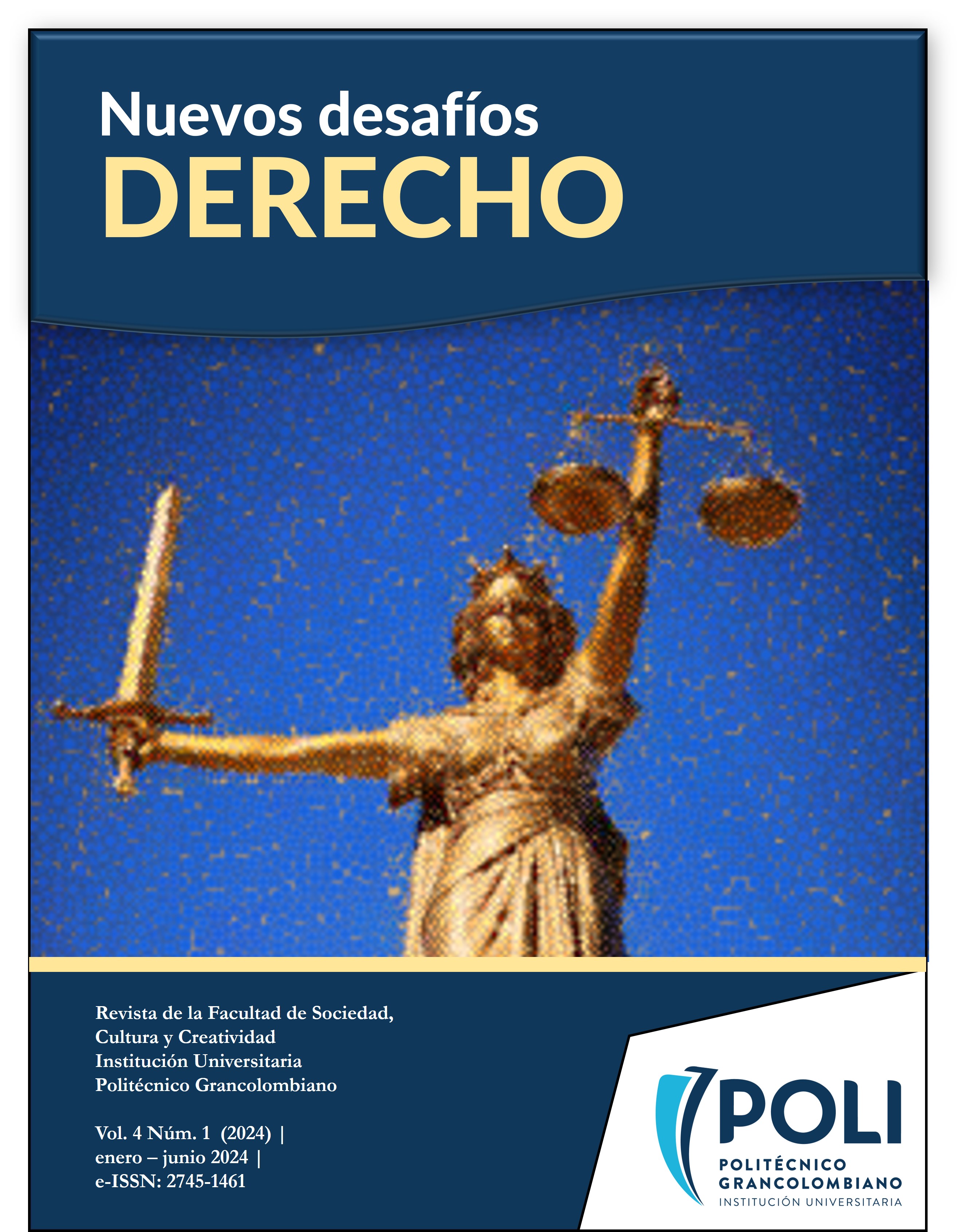Abstract
The resolution of conflicts in the school environment is fundamental to promote a healthy coexistence, so it is a task of the school to encourage the learning of skills to manage disagreements and differences in a constructive way, in an environment of mutual respect, empathy and collaboration, conditions that can contribute to the creation of a space where effective communication, understanding and the establishment of positive relationships among members of the educational community as a basis for the culture of peace. Therefore, this study sought, through research from the critical reflexive paradigm andqualitative approach, the construction of knowledge about the way conflicts are presented and handled in the El Dorado Educational Institution, in order to, in accordance with the design of action research, present as an action a proposal to address the problems identified in the research phase. As a result of this study, the main situations resulting in conflicts were characterized, among which intolerance, lack of dialogue and verbal and physical violence were observed, in front of which the students, at least in theory, they pointed out to go to dialogue to resolve them; from this, four educational
workshops were designed and implemented that contributed to the reflection and analysis of situations in which second grade students managed to demonstrate the importance of dialogue and empathy for the peaceful resolution of the conflicts.
References
Arboleda López, A. P., Huertas Díaz, O., Gómez-García, C. A., & Blanco Alvarado, C. (2023). Reflexiones acerca de los mecanismos alternativos de solución de conflictos en época de pandemia y su aplicación a través de los medios digitales en Colombia. Prolegómenos, 25(50), 153–164. https://doi.org/10.18359/prole.6260
Blanco, C (2020) El recordatorio a la determinación del contenido esencial de los derechos fundamentales, atendiendo el escenario de la pandemia por el Covid-19 en el Estado colombiano en Revista Novum Jus. Vol 15 Num 1. DOI: 10.14718/NovumJus.2021.15.1.2. p.p . 17-40
Bravo Iván, y Herrera Torres, L. (2011). Convivencia escolar en Educación Primaria. Las habilidades sociales del alumnado como variable moduladora. DEDiCA. REVISTA DE EDUCAÇÃO E HUMANIDADES, 1 (2011) Março, 173-212.
Burbano Erazo, O. (2017). LA RESOLUCIÓN PACÍFICA DE CONFLICTOS EN EL AULA. Pereira –
Risaralda: Universidad Tecnológica de Pereira. Obtenido de https://repositorio.utp.edu.co/server/api/core/bitstreams/a226ca99-4ba0-4000-916b- bc22ab414af8/content
Cabrera Berrezueta, Bolívar. (2016). La estrategia pedagógica como herramienta para el mejoramiento del desempeño profesional de los docentes en la Universidad Católica de Cuenca. Revista Cubana de Educación Superior, 35(2), 72-82. URL: http://scielo.sld.cu/scielo.php?script=sci_arttext&pid=S0257-
&lng=es&tlng=es.
Dopico Rodríguez Eduardo. (2011). Conflicto y convivencia en los entornos escolares. Cuadernos de Educación y Desarrollo Vol 3, Nº 26 (abril 2011). URL: https://www.researchgate.net/publication/227431343_Conflicto_y_convivencia_en_l os_entornos_escolares
Gallego J (2014) Paradoja y complejidad de los derechos humanos en la sociedad moderna. Sentido y comunicación. Revista IUSTA, N.º 40, enero-junio de 2014, pp. 143-165
Elliot, J. (2010). La investigación-acción en educación (4ª ed.). Madrid, España: Morata.
Gómez Collado, M. E., (2006). Reseña de "Educación y conflicto. Guía de educación para la convivencia" de Xesús Jares. Espacios Públicos, 9(18), 256-261. URL: https://www.redalyc.org/pdf/676/67601818.pdf
Hernández R., Fernández C. y Batista M. (2014). Metodología de la investigación. México: McGraw Hill.
Martínez Ibáñez, M. (2018). La formación en convivencia: papel de la mediación en la solución de conflictos. (B. C. Universidad del Norte, Ed.) Educación y Humanismo, 127-
Recuperado el 19 de agosto de 2023, de https://revistas.unisimon.edu.co/plugins/generic/pdfJsViewer/pdf.js/web/viewer.html
?file=https%3A%2F%2Frevistas.unisimon.edu.co%2Findex.php%2Feducacion%2Farticl
e%2Fdownload%2F2838%2F5784%2F25281#%5B%7B%22num%22%3A52%2C%22gen
%22%3A0%7D%2C%7B%22name%22%3A%2
MEN (2023). Política Educativa Para la formación escolar en la convivencia. URL: https://www.mineducacion.gov.co/1621/articles-90103_archivo_pdf.pdf
Rodríguez Luna, M. E. (2012). El taller: una estrategia para aprender, enseñar e investigar. (É. L. Educación, Ed.) Bogotá , Colombia: Universidad Distrital Francisco José de Caldas. URL:
https://ftp.isdi.co.cu/Biblioteca/BIBLIOTECA%20UNIVERSITARIA%20DEL%20ISDI/COLE CCION%20DE%20LIBROS%20ELECTRONICOS/LE-1995/LE-1995.pdf#page=14
UNESCO. (2015). Educación para la ciudadanía mundial: temas y objetivos de aprendizaje. ISBN: 978-92-3-300024-7. Organización de las Naciones Unidas para la Educación, la Ciencia y la Cultura. 2015. URL: https://unesdoc.unesco.org/ark:/48223/pf0000233876
Vaello, J. (2005). Habilidades sociales en el aula. Madrid: Santillana.

This work is licensed under a Creative Commons Attribution-NonCommercial-NoDerivatives 4.0 International License.
Copyright (c) 2025 Nuevos desafíos del Derecho

